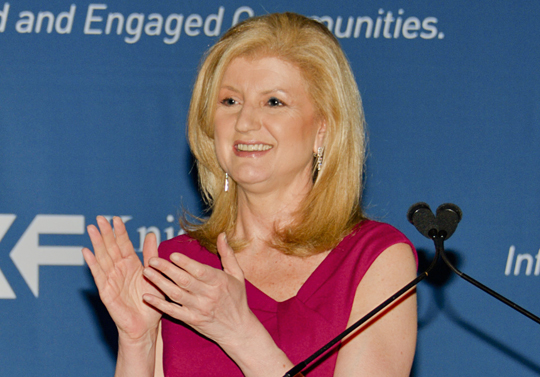 Journalisted is an independent, not-for-profit website built to make it easier for you, the public, to find out more about journalists and what they write about. It is run by the Media Standards Trust, a registered charity set up to foster high standards in news on behalf of the public, and funded by donations from charitable foundations. Each week Journalisted produces a summary of the most covered news stories, most active journalists and those topics falling off the news agenda, using its database of UK journalists and news sources.
Journalisted is an independent, not-for-profit website built to make it easier for you, the public, to find out more about journalists and what they write about. It is run by the Media Standards Trust, a registered charity set up to foster high standards in news on behalf of the public, and funded by donations from charitable foundations. Each week Journalisted produces a summary of the most covered news stories, most active journalists and those topics falling off the news agenda, using its database of UK journalists and news sources.
The News of the World, Space Shuttles and Harry Potter
for the week ending Sunday 10 July
- The News of the World, phone hacking and the Atlantis Space Shuttle grip the headlines
- The final Harry Potter film enchants the media
- South Sudan gaining independence and Berlusconi’s bribery pay-outs covered little
Covered lots
- The demise of the News of the World, which published its last issue on Sunday after 168 years in print, 605 articles
- The final Harry Potter film, ‘Harry Potter and the Deathly Hallows Part 2,’ which premiered in London on Thursday, 10 years after the first film was released, 118 articles
- The Atlantis Space Shuttle landing at the International Space Station for the last time, 69 articles
Covered little
- South Sudan gains independence, following decades of conflict with the North in which around 1.5 million people died, 54 articles
- 59 dead and more still missing, many of them children, after a cruise ship sank on Russia’s Volga river, 6 articles
- Silvio Berlusconi’s firm, Fininvest, to pay 560million euros for bribery, 3 articles
Political ups and downs (top ten by number of articles)
- David Cameron : 489 articles (-9% on previous week)
- Ed Miliband : 264 articles (+27% on previous week)
- Jeremy Hunt: 139 articles (+88% on previous week)
- George Osborne: 134 articles (-23% on previous week)
- Tony Blair: 133 articles (-17% on previous week)
- Nick Clegg: 100 articles (+8% on previous week)
- Gordon Brown: 97 articles (+26% on previous week)
- Chris Huhne: 73 articles (+92% on previous week)
- Vince Cable: 58 articles (-6% on previous week)
- Liam Fox: 49 articles (-33% on previous week)
Celebrity vs serious
- The Duke and Duchess of Cambridge hit Hollywood, 36 articles vs. Cameron’s announcement that 500 troops will be withdrawn from Afghanistan by next summer, also 36 articles
- Princess Charlene’s ‘happily ever after’ with Prince Albert of Monaco, 13 articles vs. fresh claims from the US that the Pakistani authorities sanctioned murder of journalist Syed Saleem Shahzad, 3 articles
- Victoria Beckham gives birth to her first daughter 24 articles, vs. Santander bank moves its call centres away from India, 16 articles
Arab spring (countries & current leaders)
- Libya and Colonel Gaddafi: 47 articles (-68% on previous week)
- President Al Assad and Syria: 35 articles (-66% on previous week)
- Gaza and Hamas: 11 articles (-27% on previous week)
- Yemen and President Saleh: 10 articles (-38% on previous week)
- Israel and Prime Minister Netanyahu, 10 articles (+33% on previous week)
- Iran and President Ahmadinejad, 7 articles (-30% on previous week)
- Iraq and Prime Minister Al Maliki: 4 articles (+400% on previous week)
- Egypt’s Military Council: 4 articles (100% on previous week)#
- Morocco and King Mohammed VI, 3 articles (+0% on previous week
- Saudi Arabia and King Abdullah 2 articles (+100% on previous week)
- Jordan and King Abdullah 2 articles (-33% on previous week)
- Lebanon and Prime Minister Najib Mikati 2 articles (+200% on previous week)
- United Arab Emirates and President Al Nahyan: 1 article (+100% on previous week)
- The West Bank and President Abbas: 0 articles (-100% on previous week)
- Oman and Sultan Al Said: 0 articles (-100% on previous week)
Who wrote a lot about…’phone hacking’
Long form journalism
- 3,361 words: Hungary in Crisis: Tensions with its gypsy population threaten to rip the Eastern European country apart – Peter Popham, The Independent, 10h July 2011
- 2,234 words: The cult of Farrow and Ball – Hilary Rose, The Times, 9 July 2011
- 3,238 words: The mobile market is slipping out of its hands, but is Nokia getting the message? – Simon Munk, MailOnline, 9 July 2011
For the latest instalment of Tobias Grubbe, journalisted’s 18th century jobbing journalist, go to journalisted.com/tobias-grubbe



